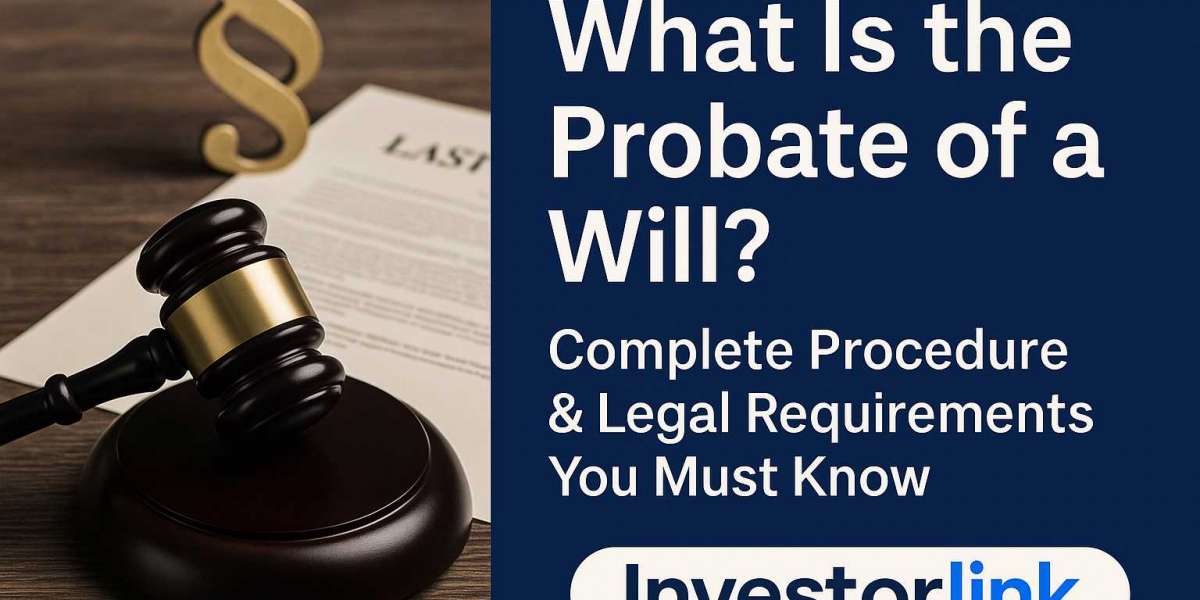When a person passes away, their belongings—like property, money, and investments—must be passed on to their heirs or beneficiaries. If the person has left a will, the probate of will procedure is the legal process that helps make this happen. In simple words, probate is the court’s way of confirming that a will is valid and ensuring the person’s wishes are carried out properly.
In this blog, we’ll explain what probate means, how the process works, what legal documents are needed, and how it connects to tracing lost investments and the application for succession certificate.
What Does “Probate of a Will” Mean?
The word "probate" means proving the will in court. It is a legal certificate that confirms:
- The will is real and valid.
- The person named as executor (who will manage the property) is legally approved.
- The distribution of the deceased’s property as per the will is allowed.
In India, probate is compulsory in certain areas, especially if the will was made in cities like Mumbai, Chennai, or Kolkata. In other places, it may not be required unless someone challenges the will.
Why Is Probate Needed?
Probate is needed for several reasons:
- It gives legal power to the executor to manage and transfer property.
- It prevents fraud and ensures the will is genuine.
- It helps financial institutions, like banks and mutual funds, release the deceased’s assets.
- It clears doubts if there is a family dispute over the will.
Without probate, the beneficiaries may face delays and legal issues in receiving their rightful share.
Step-by-Step: Probate of Will Procedure
Let’s walk through the probate of will procedure in simple steps:
- Prepare the Documents
To begin, the executor of the will must collect the following:
- Original will
- Death certificate of the deceased
- Identity and address proof of the executor and beneficiaries
- Property details and list of assets
- File a Petition in Court
The executor must file a probate petition in the appropriate district or high court. The court fees depend on the value of the assets.
- Notice to Legal Heirs
The court sends a notice to all legal heirs and asks them if they have any objection. A notice is also published in the newspaper for the public.
- Hearing and Evidence
If there is no objection, the court checks the documents and may ask for evidence from witnesses (usually the people who signed the will). If there is an objection, the case may go through a longer hearing.
- Grant of Probate
Once the court is satisfied, it issues a probate certificate. This gives the executor the legal right to distribute the assets as per the will.
How Long Does the Probate Process Take?
The probate of will procedure usually takes 3 to 6 months, but it may take longer if:
- The will is challenged.
- Legal heirs are hard to trace.
- Property records are unclear.
To speed up the process, it helps to have complete documents, valid witnesses, and legal guidance.
Probate vs. Succession Certificate
People often get confused between probate of will and application for succession certificate. Here’s the difference:
- Probate is used when a valid will exists. It is required to transfer assets as per the will.
- A succession certificate is used when there is no will (called "intestate death"). It is mostly needed to claim movable assets like bank balances, shares, and insurance.
If the deceased did not leave a will, the family must file an application for succession certificate in court to claim the money.
Tracing Lost Investments After Death
One common problem families face is tracing lost investments of the deceased. Many people have shares, mutual funds, fixed deposits, or insurance that the family may not be aware of. After death, it becomes difficult to trace these if records are not available.
Here’s how probate or a succession certificate can help:
- Institutions like banks, mutual fund companies, and stockbrokers usually ask for probate or succession certificate before releasing money.
- These documents prove you have legal rights to claim the deceased’s investments.
- Probate also helps in claiming unclaimed dividends, old shares, or dormant bank accounts.
If you’re trying to trace lost investments, start with:
- The deceased’s email accounts (for online portfolios)
- Bank passbooks and lockers
- PAN number (to check tax records)
- CERSAI or IEPF websites (for unclaimed assets)
It is wise to hire professionals or legal experts who specialize in recovering lost or forgotten investments.
Legal Requirements for Probate
Here’s a quick checklist of legal requirements for the probate of will procedure:
- The will must be signed and dated by the person who made it (testator).
- There must be two witnesses who also signed the will.
- The executor named in the will must be ready to act.
- The original will must be submitted (photocopies are not accepted).
If any of these are missing or unclear, the court may not grant probate, or the process could get delayed.
Conclusion
The probate of will procedure is an essential legal process that protects the wishes of the deceased and helps heirs receive their rightful inheritance. If you are dealing with the loss of a loved one, knowing about probate, application for succession certificate, and how to start tracing lost investments can make a difficult time a bit easier.
Always consult a legal expert or financial advisor to guide you through the right process based on your situation. Having the correct documents in hand and taking timely action can save months or even years of delay.




